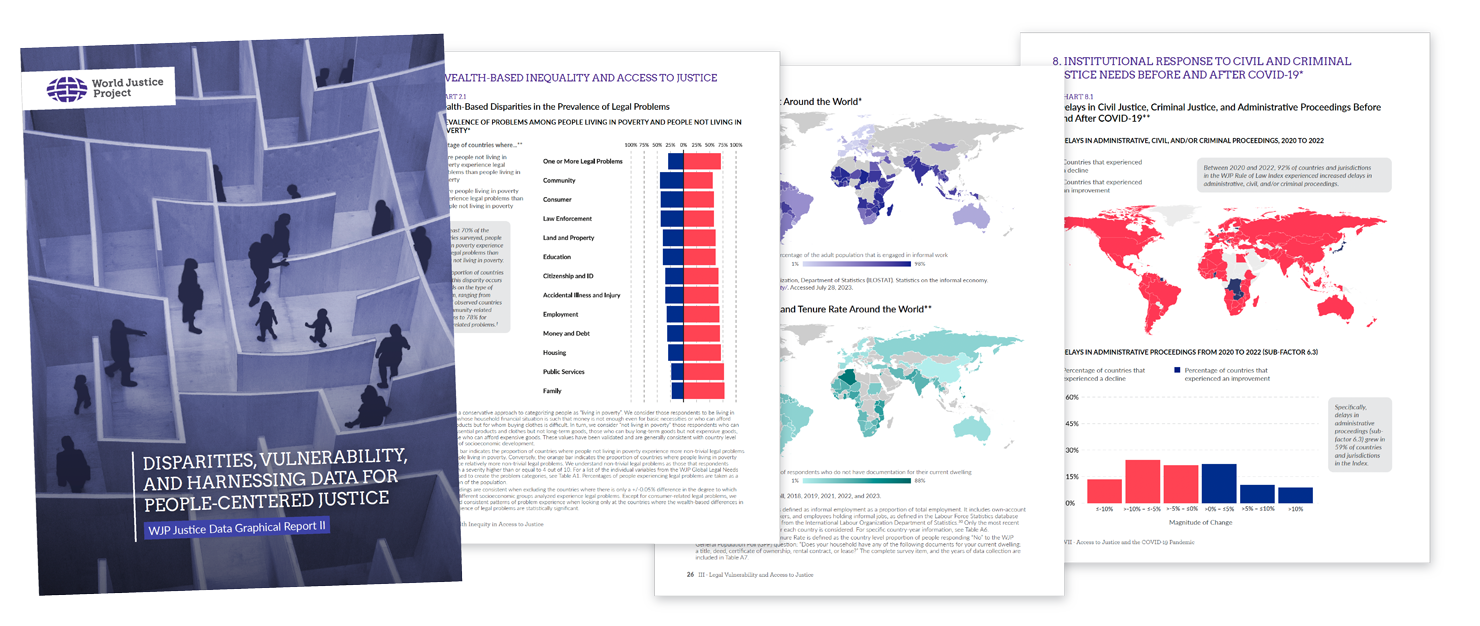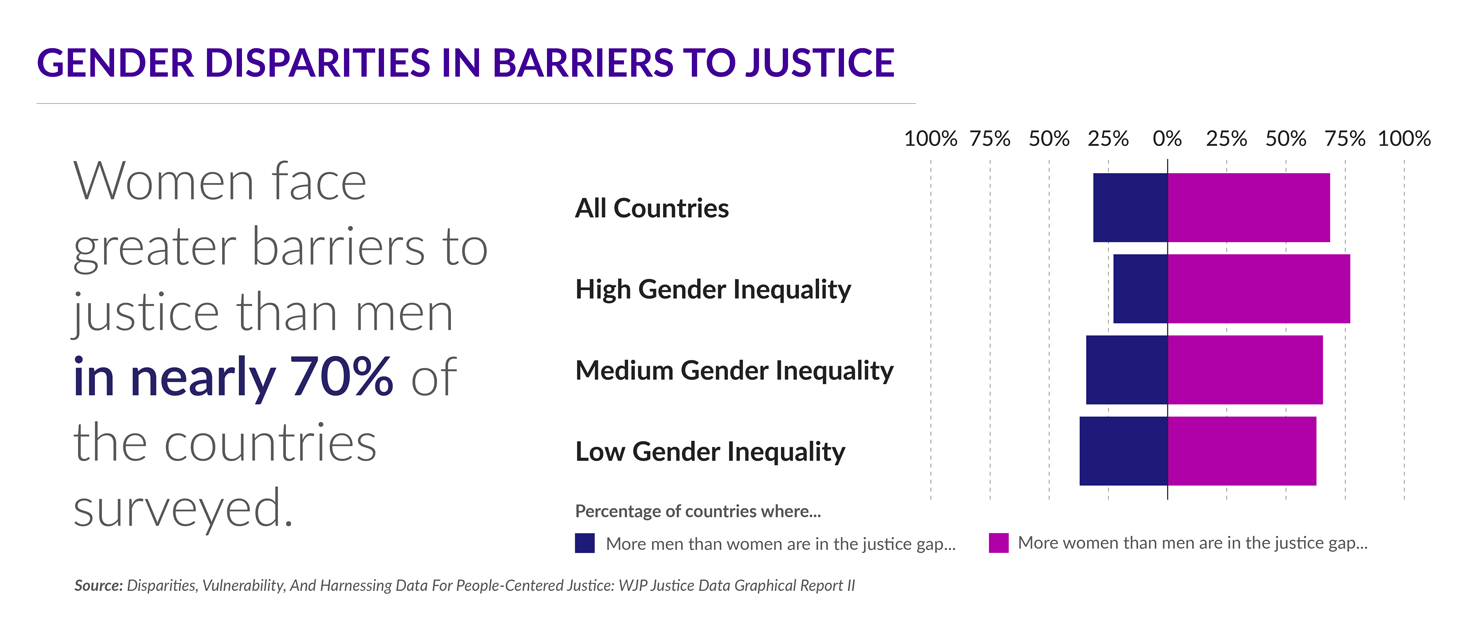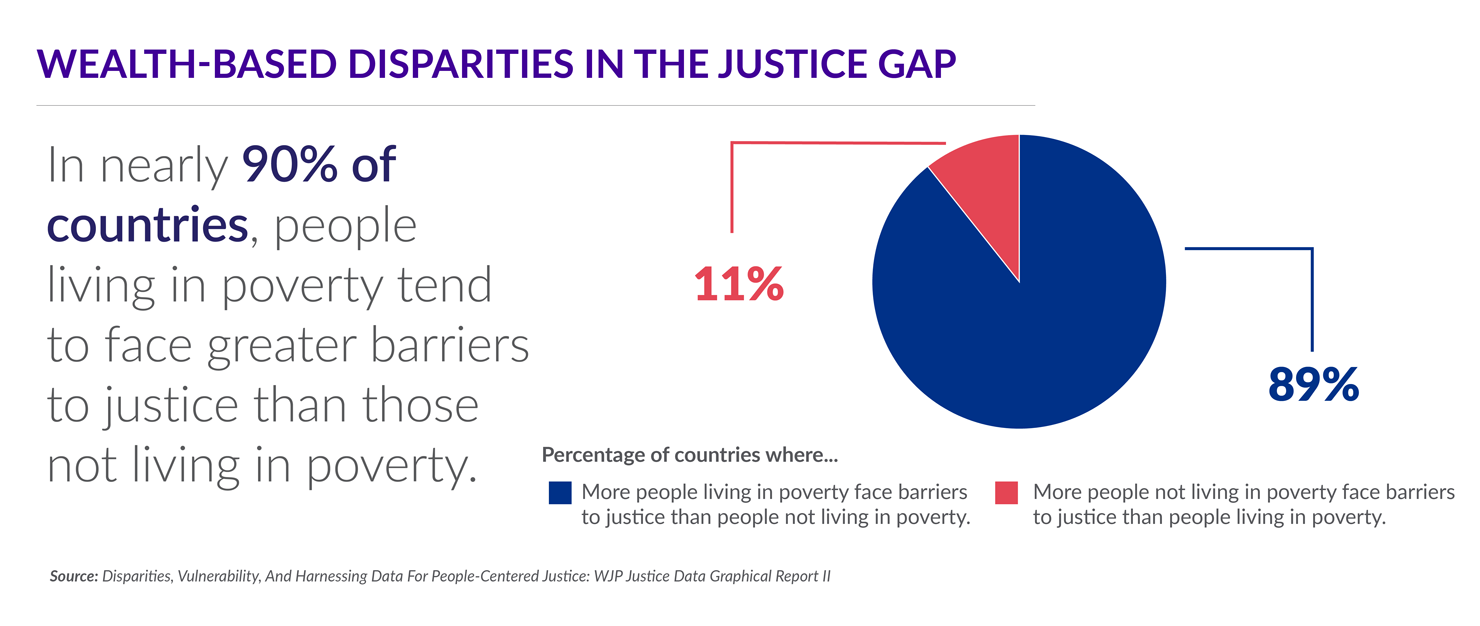

Rule of law cannot exist without an effective justice system. But for many people around the world, access to justice is elusive. The newly published Disparities, Vulnerability, and Harnessing Data for People-Centered Justice: WJP Justice Data Graphical Report Part II examines global access to justice trends. This report is the second in a series released this year. The first report looked at country-level data on the justice gap and barriers people face in their justice journeys.
In Part II, WJP research looks at how gender and wealth status influence disparities in access to justice and where informal and alternative dispute resolution mechanisms are being used around the world. The report covers 134 countries using information from the WJP Global Needs Survey and the General Population Poll.
KEY FINDINGS ON GENDER
While gender is not a determining factor in whether someone is more likely to face a legal problem generally, evidence shows that the type of legal problem faced does often depend on gender and gender inequality in a particular country. In countries where women do not have the same socioeconomic opportunities as men (i.e., countries with high levels of gender inequality), women are far less likely to experience legal issues related to employment, money and debt, and land and property than men. But in three-quarters of the countries surveyed, women were more likely to experience family-related legal issues, regardless of gender inequality level.
The data shows that women are less likely to solve their legal problems than men and they face greater burdens due to their legal problems. One reason for this is women frequently lack official documents, like proof of housing, land tenure, or identity. As a result, women are more often denied their legal rights.

KEY FINDINGS ON WEALTH INEQUALITY
The new report shows that people living in poverty experience more legal problems than those who are better off in 70% of countries surveyed.
Additionally, economic status affects a person’s ability to access justice – whether through formal legal processes or otherwise. Like women, people living in poverty experience are more likely to lack proof of housing or land tenure. Such is the case in almost all the countries surveyed (94%).
Finally, people who live in poverty frequently suffer greater hardships as the result of their legal problems than people who are not living in poverty. The report shows that these include health issues, economic difficulties, and relationship issues.

PEOPLE-CENTERED APPROACH NEEDED
This data tells us the scope of the global access to justice problem, but how can these barriers be overcome? Alternative dispute resolution (ADR) and informal justice mechanisms may be one solution for those encountering barriers to formal justice institutions. Results from the 2023 WJP Rule of Law Index show that the effectiveness of civil and criminal justice systems continues to decline globally. This suggests the need for new and innovative people-centered approaches to advancing justice. Further facilitation and analysis of effective people-centered policies will require a collaborative, multi-stakeholder effort.






